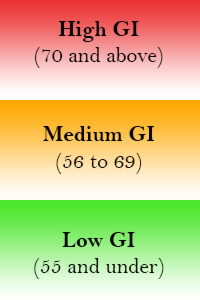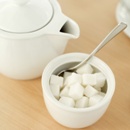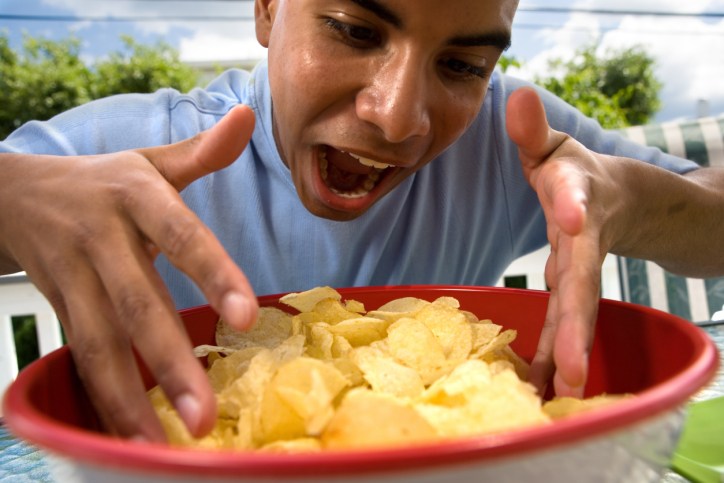Tips for Healthy Post-Partum Weight Loss
As if there weren't enough to think about with a new baby, many moms experience anxiety about losing pregnancy weight after childbirth. While women may be hard on themselves in a world of instant gratification and celebrity obsession, it's best to concentrate on planning for healthy post-partum weight loss.
Not surprisingly, prevention is the best strategy for weight control. Mothers still in the planning stages should strive to gain a healthy amount of weight during pregnancy (25 to 35 pounds), making it a little easier to rebound post-partum.
The first several months post-partum, however, is not the ideal time for a drastic weight-loss program. "The first month after pregnancy is really a time of recovery and rebuilding the body from the trauma of childbirth," says Tara Gidus, MS, registered dietitian and author. "Stay hydrated, drink plenty of water and eat protein to keep you satisfied and to assist in repairing those cells."
The most healthful and sustainable strategy to return to pre-pregnancy weight is by making gradual, permanent changes in eating habits.
Choosing Right
As a new mom, or even if this isn't your first rodeo, you'll need plenty of energy to take care of baby. Choosing the right foods — fruits, vegetables, whole grains, lean protein and dairy — is especially important if you are breast-feeding. To ensure adequate milk supply, you'll need to meet your energy needs and include essential nutrients. For most post-partum women, calorie intake should be in the 1,800 to 2,200 range, and Gidus recommends an extra 300 to 400 calories more per day while lactating, depending on how much milk you are producing. "Breast milk is also high in fat content, and the fat often comes from maternal stores that were added during pregnancy," says Gidus. Consider this a bonus when it comes to shedding pounds post-partum!
Rather than count calories, focus on choosing foods that are nutrient-rich. If you find yourself losing more than a pound per week, you probably should add a few nutritious calories into your diet. If you gained more than 35 pounds during your pregnancy, it may take up to a year or more to bounce back, but you can do it!
6 Tips for Mom's Healthy Meal Plan
- Don't skip meals.
- Drink at least 6 to 8 glasses of water. If breast-feeding, get into the habit of filling a tall glass of water to keep with you all day.
- You need 1,000 milligrams of calcium daily. You can get this easily by consuming three servings of low-fat or fat-free dairy throughout the day.
- Consume at least 2 cups of fruits and 2½ cups of vegetables.
- Include protein at each meal.
- Plan healthy snacks (fresh fruit, nuts, Greek yogurt with granola, hummus with vegetables, or a protein bar).
Getting Back to Exercising
Katie Serbinski, MS, RD, tells her clients that the weight will come off, but baby's health and nutrition should be the priority. "Establish a breast-feeding or bottle feeding schedule before thinking about a weight loss plan," she says. Serbinski also recommends waiting until the baby is 6 to 8 weeks old before beginning to work out regularly. At that point, walking may be the perfect post-partum activity because it's easy to do, not strenuous and can include baby. You can incorporate weightlifting or a resistance routine (such as yoga or using exercise bands) once you lose your initial weight and your baby is a little older, but to start, aim for a daily 2- to 4-mile walk with your baby and stroller.
Avoiding Weight Loss Fads
After bringing your baby home from the hospital, it's easy to slip into the "I want to lose weight fast!" mentality. Some quick weight loss plans may be tempting as you stand (often sleep-deprived) in the grocery store check-out line and see images of thin celebrity moms on magazine covers.
Say no to these fad diets:
- Baby Food Diet. You guessed it — this diet encourages mom to join baby with pureed baby food for breakfast and lunch (14 servings), and then a sensible dinner. This fad diet lacks important adult nutrients, including adequate amounts of fiber and fat, and is not healthy or sustainable.
- Mono diet. This involves eating the same exact foods every day, or only eating one food for all meals in a single day. Not only will this deprive mothers of important nutrients, but also will likely result in a diet that is too low in protein and calories, so weight loss likely will be a loss of muscle mass.
- The OMG Diet. This fad diet encourages intake of any kind of carbohydrate (which is too simplistic and unbalanced) and discourages exercise, breakfast and certain fruits. Any very low-calorie diet — 1,200 calories or less — that requires liquid meals and is very restrictive is a bad idea.
-
Losing Love Handles: How Easy It Is
There are people who look lean at first
-
Abdominal Exercises vs The Belly Fat Diet
To get rid of belly fat, which is more effective a diet to lose belly
-
Dieting 101 Choosing The Right Diet Foods
Diet fads come and go but the Food Guide Pyramid seems to continue to
-
Atkins LowCarb Part 3
Papa Murphys has a new low-carb pizza. Burger King has a low-carb hamb
-
More Ideas On How You Can Lose Arm Fat Quickly
Without a doubt, there are lots of articles floating about in the w
-
Weight Loss — Strategies to Take care of This important Nightmare
Continuing to keep fit and healthy is difficult because you eventually
- DON'T MISS
- Weight Loss And Weight Management Information
- What Is The Best Exercise To Lose Belly Fat-Heres The 100% Proven Solution
- The Ideal You - A Weight Management Journey
- The Reality Regarding Dieting And Weight Loss
- The Pros and Cons of FDA Weight Loss Pills
- Geary’s Secrets Revealed: the Truth About Abs
- Breaking Your Sugar Addiction
- Does The Cabbage Soup Diet Work?
- How To Use Your Subconscious Mind For Massive Life Success
- Finally...a Diet that DOES Work




